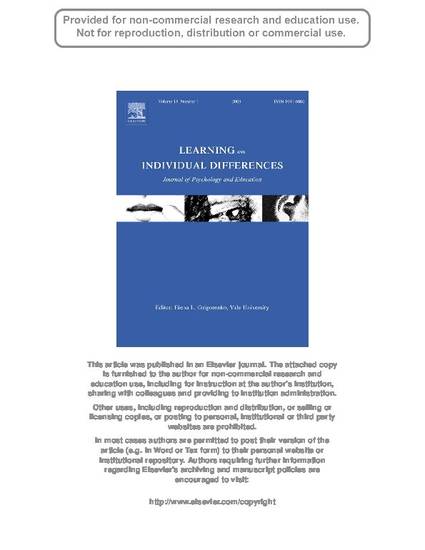
Article
A comparison of predictors of early emerging gender differences in mathematics competency
Learning and Individual Differences
(2008)
Abstract
Five variables (strategy use, fluency, accuracy, spatial ability and confidence) that have been linked to gender differences in mathematics were compared as predictors of mathematics competency. Two hundred and forty-one second grade students from seven schools in Northeast Georgia participated in the study. In fall of the second grade, children were assessed on computation strategies, spatial ability, confidence in mathematics, and accuracy and fluency. In spring, the children took a mathematics competency test. Regression analyses indicated that fluency, accuracy and cognitive strategy use predicted mathematics competency scores. Gender differences were most evident in fluency and the types of strategies used suggesting that it is these variables that influence the emergence of gender differences in math competency. In examining the highest performing group, gender differences in manipulative strategy use were more pronounced in comparison to the total sample, but cognitive strategies were linked to test performance.
Disciplines
Publication Date
2008
Citation Information
Martha Carr, Hillary H Steiner, Brandon Kyser and Barry Biddlecomb. "A comparison of predictors of early emerging gender differences in mathematics competency" Learning and Individual Differences Vol. 18 (2008) p. 61 - 75 Available at: http://works.bepress.com/hillary-steiner/7/
